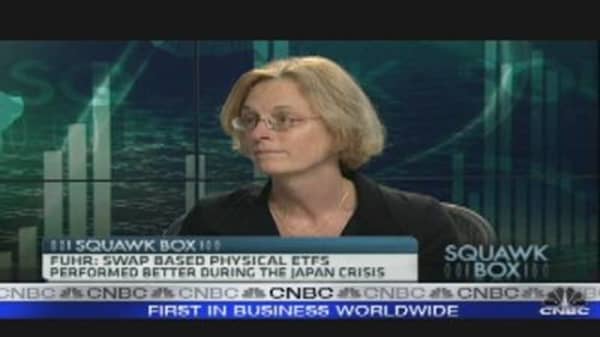After seeing an an outflow of funds in the first quarter, emerging markets seem to be gaining favor with investors once again.
"When we look at what happened in March we see that money's going back into emerging markets," Deborah Fuhr, Global Head of ETF Research and Implementation Strategy at BlackRock told CNBC.
According to fund tracker EPFR Global, since the start of the year, emerging market equity funds registered their highest weekly inflow of USD 2.6 billion during the week ended March 30.
Investors had been rotating out of emerging market equities into developed markets, with $7 billion in outflows in January, while the week ended March 25 alone saw an outflow of $2.7 billion. So the last week of March could in fact end up being a temporary blip.
Most of those outflows were from Exchange Traded Funds or ETFs. ETFs are funds that track an underlying asset's performance.
"In March what we've seen is the flows into ETFs have really reflected what's happened in the Middle East, the weather conditions, where we've seen droughts in China and bad weather conditions affecting agricultural crops; and we've also seen the effect of what happened in Japan. So we've seen people have used ETFs to move money out of emerging markets," Fuhr noted.
Despite that, there were some emerging markets that still saw continued inflows during that period. "When we looked at what was happening in January we saw the broad emerging market index had some net outflows, but money was still going into Brazil, Korea, Taiwan and Russia."
The lure of ETFs though were not restricted to one particular sector, country or region. Fuhr pointed out money has also been pouring into ETFs focused on developed markets, energy, technology and agricultural commodities. One notable winner in the last quarter was Japan. Blackrock's iShares MSCI Japan Index Fund attracted $1.7 billion worth of funds, more than any other U.S. listed ETF, with a bulk of that before the March 11 earthquake and tsunami.
The convenience of trading in ETFswas also a big draw for investors. "I think that when markets are volatile and correlations are high and you don't have time to pick individual stocks or bonds, ETFs are the preferred vehicle to do it," Fuhr added.
However, while ETFs which track benchmark indices tend to be more popular, Fuhr said it was important for investors to be aware of what comprised each underlying index. If, for example, investors wanted to invest in a broad range of Middle Eastern countries, putting money in the iShares MSCI Emerging Market Index might not be the best way. The only Middle Eastern country represented in the underlying MSCI Emerging Market Index, she pointed out, was Egypt



